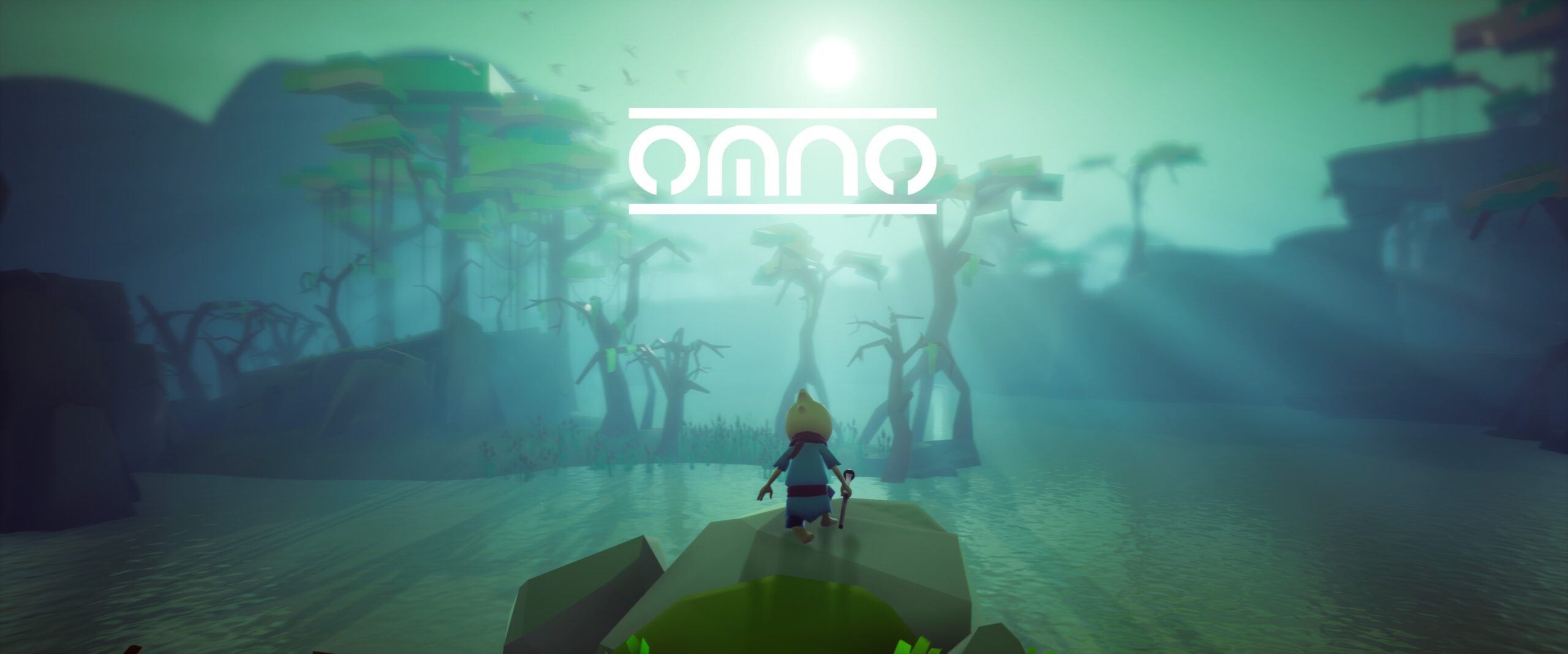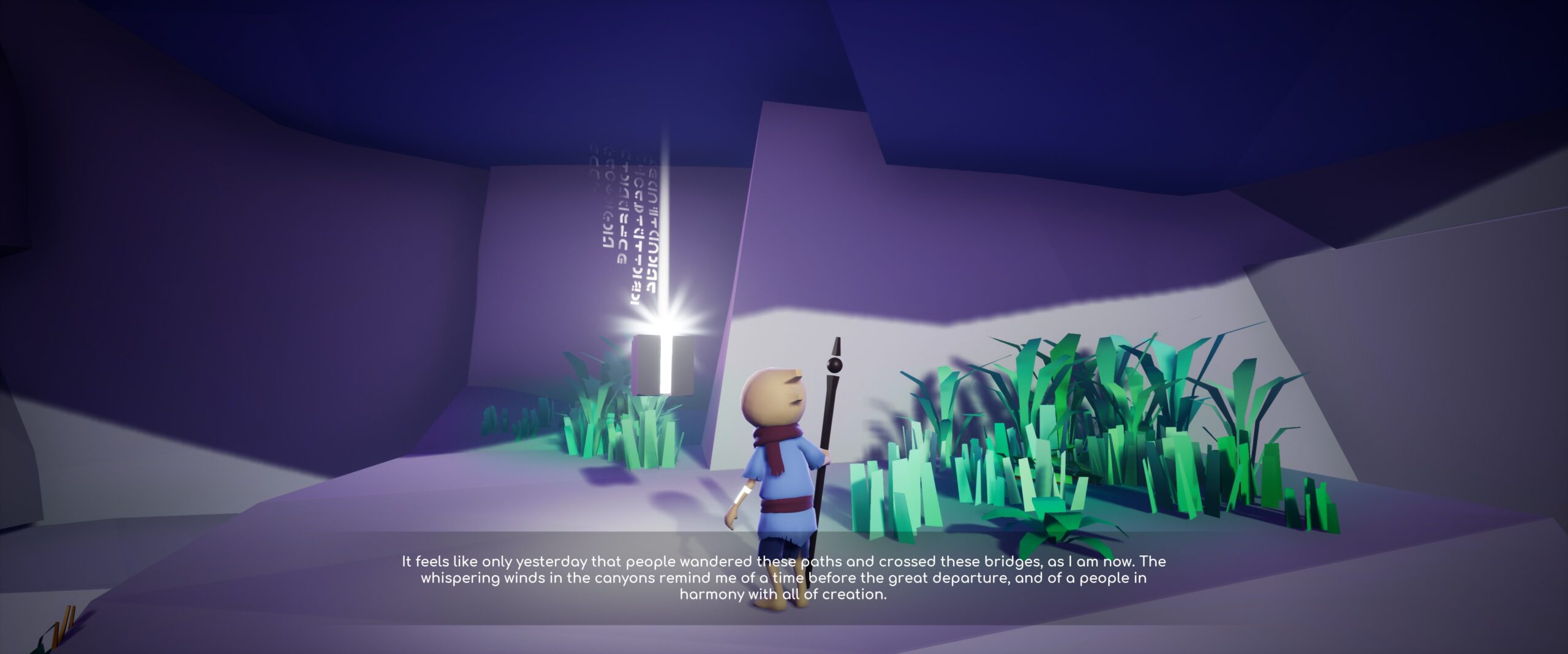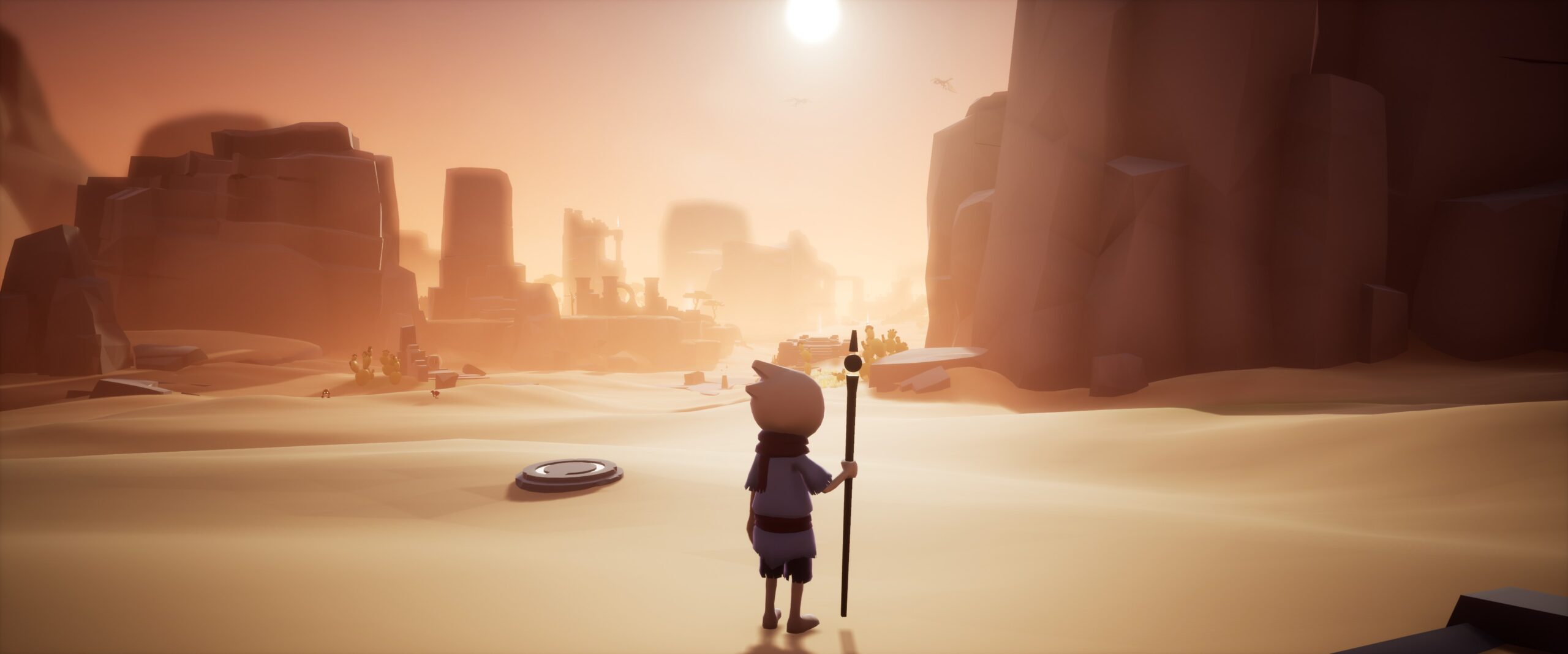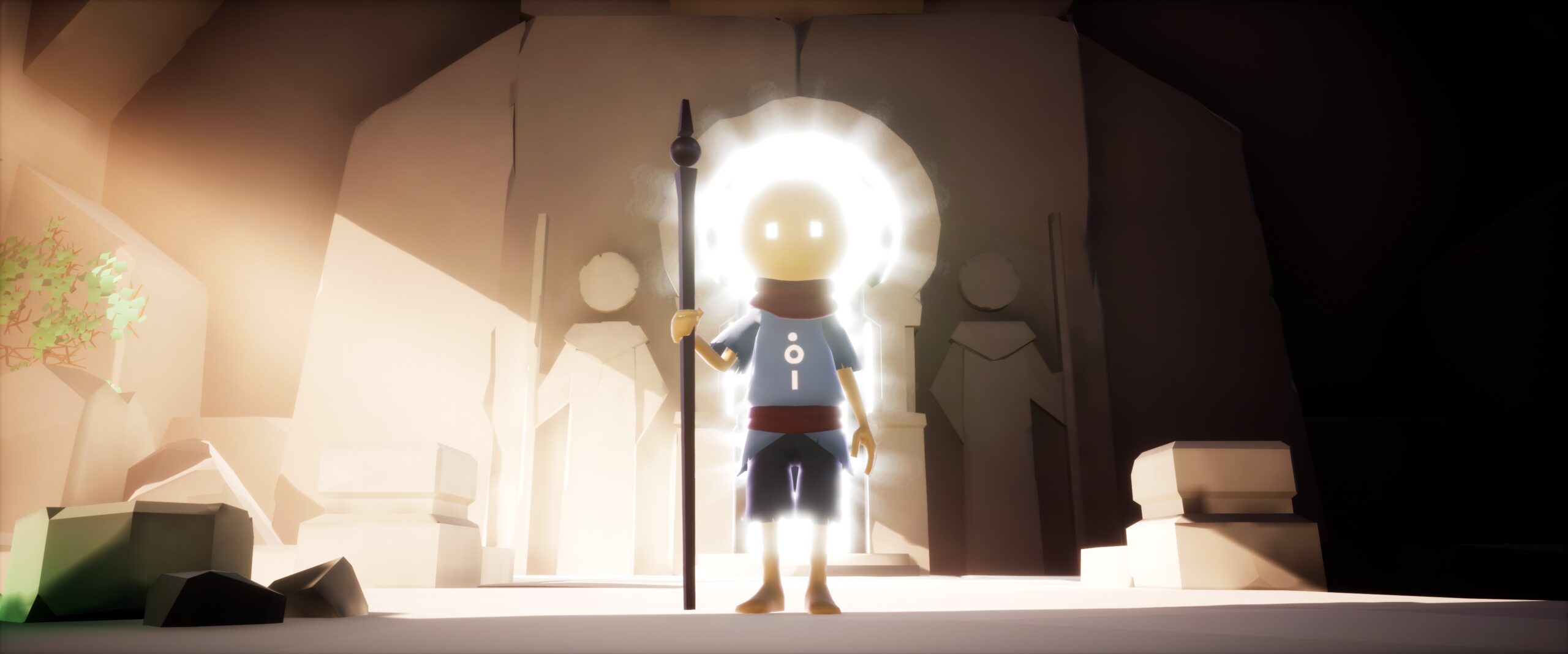The public discourse on reviewing things has long since shifted away from subtly. No longer can something simply be good enough for its own sake, everything must fall into one camp or another: the best experience ever or garbage that should be avoided at all costs. To be sure this is a product of the time, sensationalist headlines often garnering more interaction than those that tread a more nuanced line, seeking to explore the depths of what something is, what it wanted to be and ultimately what it achieved. Such were my thoughts when reading other reviews of OMNO, the title I backed on Kickstarter many years ago, where it seems everyone is either praising it as being the best thing since Journey whilst others (admittedly not many) lambast it. The thing about OMNO is that it’s fine, doing a couple things well but is overall a very middle of the road title. Given that much of what you’ll see of the game today is present in the Kickstarter campaign videos you do have to wonder what those 3 more years were spent on.

You awaken in a world that seems bereft of any others like you. All you have with you is a staff and a floating companion to guide you through this world that has been taken back by nature. The relics of your people’s past lie scattered around you, giving clues as to where they all went. It seems that there was a Great Departure where everyone decided to journey to a place of light. What lies beyond that gate though is a mystery, but there are numerous adherents who believe it to be the next world that they must travel to. To follow in their footsteps you must face the same trials they did, waking up an old and long dead world for one last pilgrimage.
OMNO takes the low-poly/no texture aesthetic to the extreme, barely even budgeting enough polygons for your characters supposedly round head which can quickly turn very boxy in the wrong light conditions. The heavy use of modern lighting techniques does a lot of heavy lifting here, making the wide vistas of the game’s numerous levels seem a lot more filled out than they otherwise would be. There’s absolutely inspiration from the giants of this genre, Journey and its progeny, with the hieroglyphs and various story totems having direct comparisons between the two. Given the Kickstarter page and the current game look basically identical it’s clear that not much effort was spent on upping the visuals, which I can understand, although I really do feel like some places could’ve done with a little love (like old boxhead there).

If you asked me to back a puzzle/platformer today I’d politely decline since we’re basically flooded with them these days but back then it wasn’t exactly the done thing. So by today’s standards OMNO is exceptionally run of the mill, employing the usual puzzle tropes you’ll see in all platformers these days. The unique mechanic is supposed to be the staff which gives you a couple powers that you’ll use to solve…more puzzles. This would be fine if the game followed the normal challenge curve that most games in the genre follow but it doesn’t, instead opting to make OMNO more casual. The resulting game then relies heavily on the small tidbits of story and variation in biome to keep you interested and, if I’m honest, I feel like that really isn’t enough.
You see whilst there are added mechanics to deal with as you progress none of them are really used in combination with each other, at least not in ways you wouldn’t expect upon first seeing them. Indeed the additional puzzles you get thrown using new mechanics are typically focused on just that one mechanic, meaning that you just have to remember how to use the ability and not so much how it might interact with something else. This results in most of the levels feeling very similar and it’s just a small grind to get through them. Indeed once you get into the rhythm of each level you can kind of guess where everything is going to be and that’s where the interest starts to drop right down.

Here is where a solid story could come in and fill the gaps, pulling you into a well paced narrative to make the repetitive puzzle solving more intriguing because it’d lead to story progression. OMNO doesn’t deliver on this front unfortunately, alluding to a lot of stuff but not really giving you much to chew on. This is not for me trying to blast through the game either, I fully completed each level, and the various snippets just don’t add up to anything. Worse still the game’s ultimate conclusion doesn’t seem to make sense in context, depicting a deeper relationship between you and your floating companion than I feel was earnt through the game’s events.
Does this mean I think OMNO is bad? Not really no, it’s just…plain. All of its components, taken individually, are fine and it’s clear that the developer had a goal of trying to do as much as they could with as little as they could manage. The visuals and soundtrack are good examples of this but all the other elements just don’t do enough to bring everything together. It’s like getting dinner from one of those meal kit providers: everything to make a great meal is there, but it’s just not put together. To be sure I could try to read into everything and make the game seem like more than it is but honestly, it’s not.

I don’t believe OMNO suffered from lofty ambitions, far from it. Reading back over the Kickstarter stretch goals the ideas for additional features and content were all pretty basic in nature. What happened between when I backed and today though isn’t a story I’m particularly interested in diving into, I’m sure the dev had their reasons for taking as long as they did. Was it worth the wait? In my mind no, it’s a middle of the road experience these days that doesn’t bring anything new, unique or particularly interesting to the table. Does that make it bad? Nope, but it’s also not a game I think I would’ve played today had I not backed it all those years ago.
Rating: 6.75/10
OMNO is available right now PC for $26.95, Total play time was 3 hours with 85% of the achievements unlocked.



